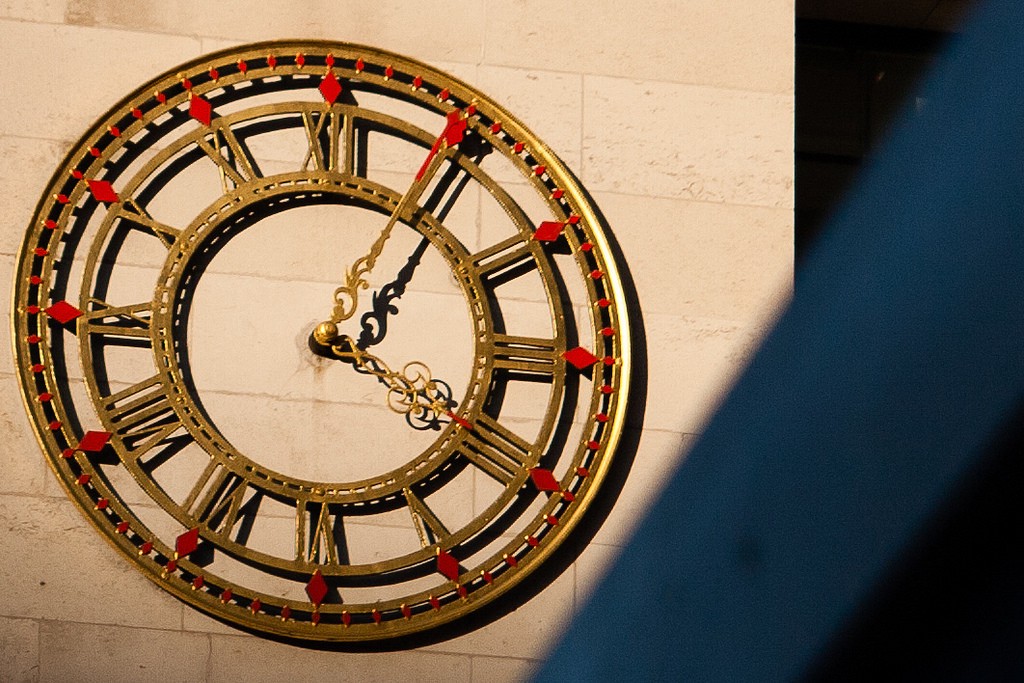A Time vs. Money Question of the Day

This weekend, The New York Times asked us to consider whether money was more valuable than time:
What Should You Choose: Time or Money?
One of us, Professor Hershfield, recently faced such a choice. He was invited to teach a weekend seminar out of state. But he had a baby girl at home, born 12 weeks earlier. The pay would offset the costs of child care, but the job would require two days of not oohing, aahing and bonding with the baby.
The value of the money was easy to quantify. But it was harder to put a value on the amount of time that would be lost with the family. He determined that there were only 222 weekends left before the baby would start kindergarten, when quality family hours would give way to car pools to friends’ houses.
Which would lead to greater happiness — the money or the time?
I have to throw in the “not a parent” caveat, but I have some serious side-eye at three different aspects of this situation:
- Only 222 weekends!
- Play-dating and spending weekend afternoons at friends’ houses starts way before kindergarten.
- No mention of how this decision would affect the other parent, from “this person might be taking on full-time infant care for the weekend” to “this money could help us in these specific ways.”
Still, the NYT surveyed 4,000 people and found that the majority of people would choose money over time—although they also asked those 4,000 people to report how happy they were, and the happiest people consistently chose time over money.
So if we were to take two people who were otherwise the same, the one who chose time over money would be happier than the one who chose money over time.
I’m not quite sure that’s the right conclusion here. If you took two people who had both overdrafted their bank accounts, for example, and asked them to choose time or money, would the person who chose time necessarily be happier?
I also feel like this is one of those situations where we’re putting the emphasis on individual choice instead of examining which aspects of our culture give us both less time and less money (and, while we’re at it, less happiness) than we would like. It’s the Latte Factor in weekend-long chunks, instead of, say, considering how much time your commute takes up or how often your workplace asks you to work extra hours.
Hank Green recently made a video explaining how reducing your commute can make you significantly happier, even if it costs more to live closer to your workplace—which, I guess, also means choosing time over money, but it’s a different choice than whether to spend a single weekend earning extra money or spending time with your family.
It’s also a choice that not everyone can make, for a variety of reasons. It takes a lot of work and resources (and luck and privilege) to live near your office, and it might take a while to find the right job or the affordable apartment, the same way we learned last week that it might take you a few years to save up a six-month emergency fund.
So you focus on the 222 weekends, or the latte or the new boots or whatever, because that’s what you can control—not the 1,100 weekdays in between.
Also: let’s not forget Ester’s recent post about how so many of us are using our free time to (wait for it) earn more money.
Did We Kill Hobbies By Monetizing Them?
Which brings us to the question of the day: would you have chosen the free weekend or the paying gig? And, since the NYT asked: if you chose time over money, do you think you’re happier than the people who choose money over time?
Support The Billfold
The Billfold continues to exist thanks to support from our readers. Help us continue to do our work by making a monthly pledge on Patreon or a one-time-only contribution through PayPal.
Comments